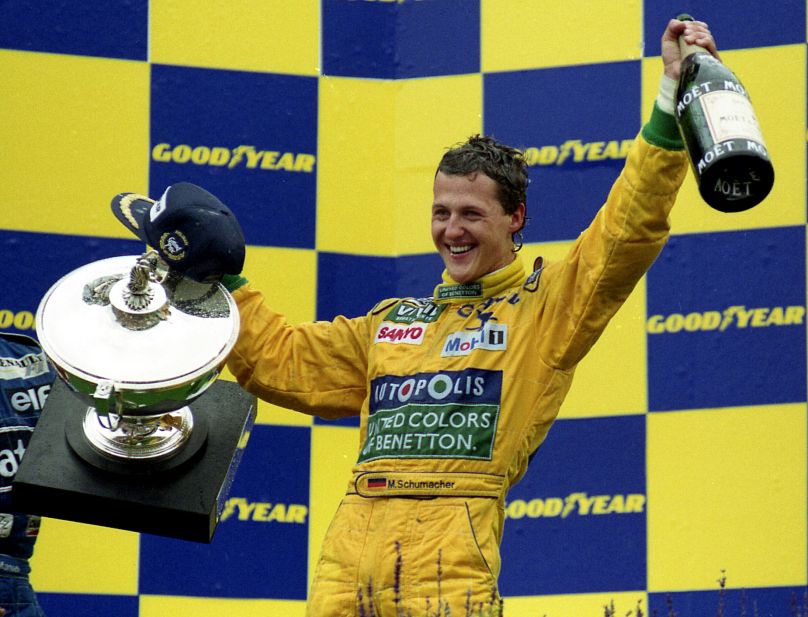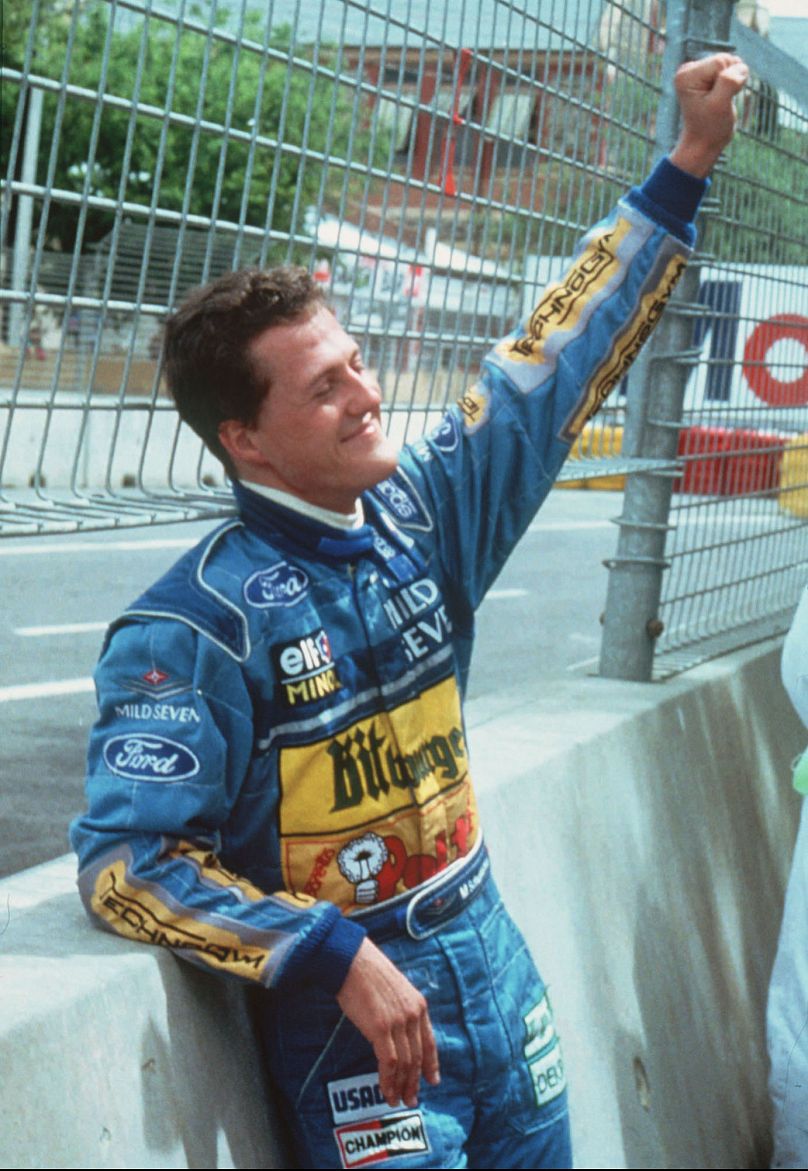13 November 1994: Michael Schumacher wins his first world title.
While these pages are usually reserved for artists, actors and musicians, the remit of cultural influence also expands into sporting stars who have transcended into a level of cultural significance.
 ADVERTISEMENT
ADVERTISEMENT
 ADVERTISEMENT
ADVERTISEMENT
In the world of motorsports, the legendary Michael Schumacher naturally fits that bill. Ask almost anyone to name a historical motor racing team and they will say Ferrari. Ask them to name a Ferrari driver and inevitably it will be Schumacher.
Schumacher became the byword for Formula 1 and motorsports in general from a half decade of dominance between 2000 and 2004 when he won five consecutive F1 world titles for the scarlet-clad team.
At the time of his retirement in 2012, he held records for the most titles (7), most race wins (91), pole positions (68) and fastest laps (77). In the years since, British driver Lewis Hamilton has managed to equal or even beat some of those records. Yet Schumacher’s place in motorsports’ hall of fame is still assured.
That wasn’t the case 29 years ago today. When the day began, the German driver was on the verge of his first world title. The day would start his impressive legacy but at a cost to his sportsman reputation.
The 25-year-old Schumacher was in his third full year of the sport following a meteoric rise. From his working-class background, Schumacher had stunned in karting leagues and impressed in lower racing leagues. In 1991, he debuted at the Belgium Grand Prix as a last-minute replacement for the imprisoned Bertrand Gachot. He silenced any doubters by qualifying seventh. In his first full year of the sport, he won his first race and finished third in the championship.
Two years later, Schumacher was preparing for the final race of the season. He’d won eight of the season’s 15 previous races and came second in two more. By all means, he should have had a comfortable lead over British driver Damon Hill in second place.
Schumacher’s lead over Hill was just one solitary point. It had already been a controversial year for the driver who had been disqualified from two races and banned for two more. All four of those races had been won by Hill as well as the two times Schumacher came second.
With one point separating the two, the final race of the season, the Australian Grand Prix, would decide the championship.
Schumacher qualified in second with Hill behind him in third. When the race began, Schumacher took the lead and Hill followed him in tow, the pair leaving the rest of the racers behind.
35 laps into the race, it looked like Schumacher would be able to hold off Hill to take the title. Until suddenly Schumacher miscalculated a corner and brushed the wall, potentially damaging his car. Hill seized the opportunity and went for the overtake. As Hill was about to pass, Schumacher steered his Benetton car into his rival. The pair crashed out. Schumacher’s first title was assured.
In F1 history, many have questioned whether Schumacher drove his car into Hill’s with the intention of destroying both cars. It wouldn’t have been the first time in the sport’s history for someone to win so acrimoniously. Ayrton Senna (who’d died in a crash earlier that same year) famously won and lost titles after collisions with rival Alain Prost.
Just two years later, Schumacher would try and win the 1997 world championship through similar means. Again, in the final race of the season, Schumacher’s car collided with that of second-place driver Jacques Villeneuve as he attempted to pass him. This time, Villeneuve was able to continue and clinched the title for himself. Schumacher was later disqualified from the entire championship, losing his second place trophy.












